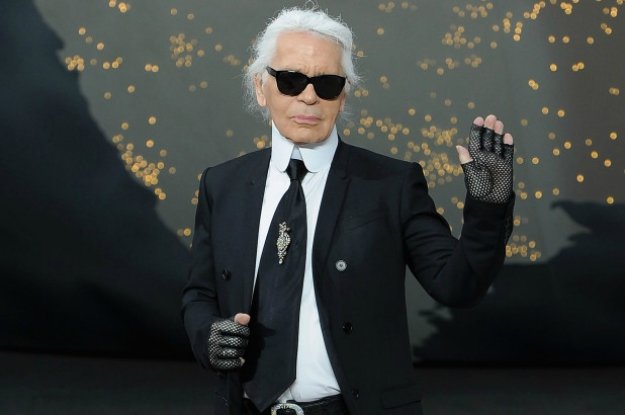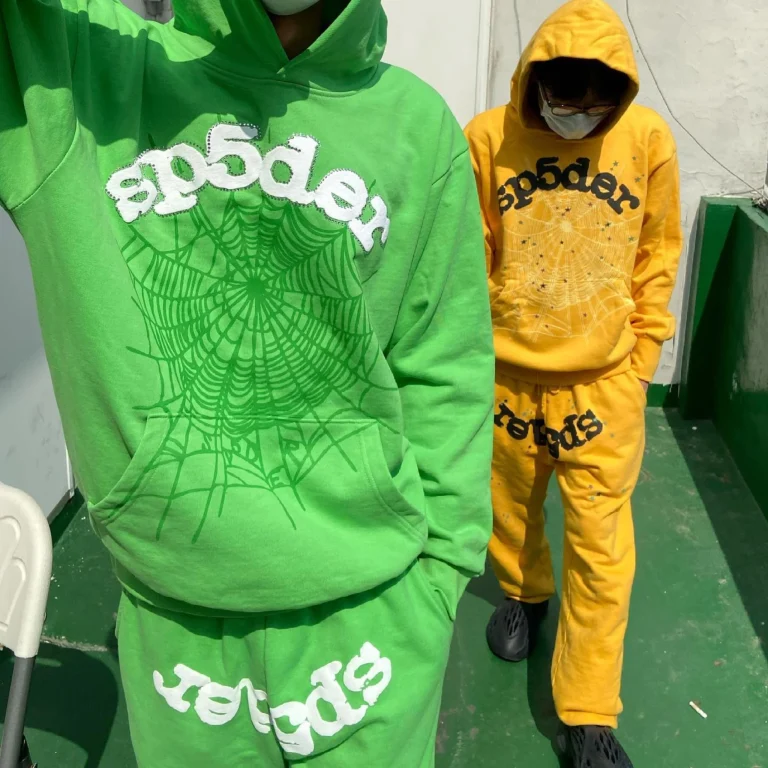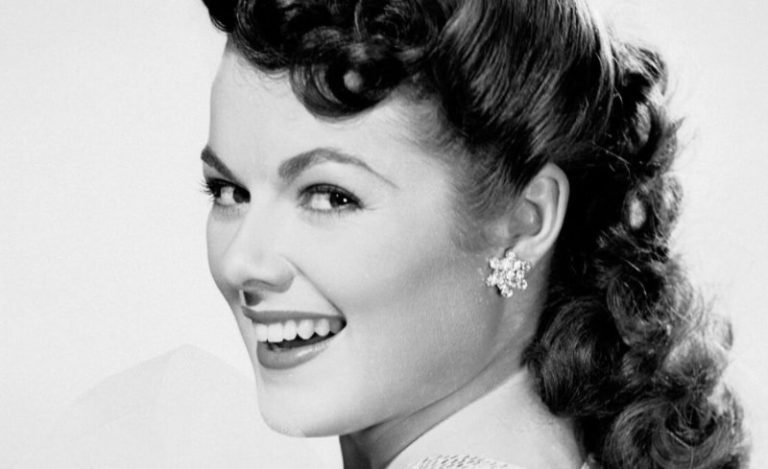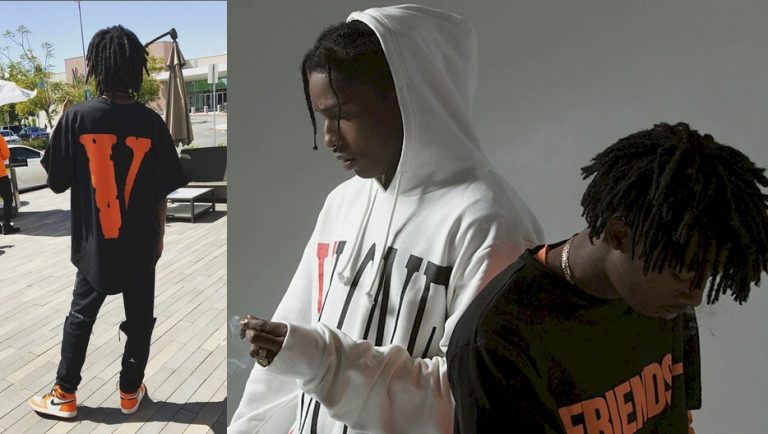Controversial Legacy of karl lagerfeld racist: Accusations of Racism, Misogyny, and More

In the realm of fashion, the eminent creative mind, karl lagerfeld racist, breathed his last in the vibrant city of Paris at the age of 85, marking a solemn farewell. Lagerfeld, revered as the “Monarch of Haute Couture,” remains an indelible luminary within the industry, his influence enduring.
Beyond his sartorial genius, Lagerfeld possessed a realm of contentious convictions. Accusations levied against him encompassed allegations of Islamophobia, racial prejudice, misogyny, and body bias. These particular perspectives, it is contended, lay concealed beneath the veil of his considerable opulence and the profound footprint he etched as a designer. This angle was meticulously explored within the pages of a piece featured in the Wear Your Voice magazine.
Countless voices raised objections regarding Lagerfeld’s role as a custodian within an industry that, for an extensive duration, perpetuated the paradigms of racial supremacy and various other facets of subjugation. The author of the article took exception to Lagerfeld’s assertion of his emancipation from the legacy of Coco Chanel’s designs. Instead, they contend that he propagated a heritage deeply entwined with far-right political inclinations in Europe, offering a somewhat watered-down rendition of his precursor’s involvement as a sympathizer and clandestine operative during the Nazi era.
Instead of trying to separate the artist from their art, the author strongly believes that the fashion industry should confront karl lagerfeld racist ‘s deeply troubling statements. The first step is acknowledging the existence of these comments and recognizing that they perpetuate harm. Lagerfeld’s beliefs, it is argued, only served to validate the views and ideologies of those who harbor hatred towards individuals whose bodies do not conform to the white supremacist, misogynistic, and ableist norm.
In 2017, Lagerfeld openly expressed his opposition to Syrian and Muslim migrants in Europe. He espoused views that were both Islamophobic and, quite frankly, anti-Semitic. He made a deeply unsettling statement, asserting, “One cannot — even if there are decades between them — kill millions of Jews so you can bring millions of their worst enemies in their place.” This comment was made just days after neo-Nazis and white nationalists gathered in Poland for protests against Black and Brown migrants, chanting slogans like “Pure Poland, white Poland!” and “Refugees get out!” This context adds further weight to the concerning nature of Lagerfeld’s statements.
karl lagerfeld racist’s professional journey was underscored by his infamous gender bias. During a conversation with Carine Roitfeld, the esteemed overseer of CR Fashion Book, he made disconcerting remarks, insinuating that the presence of an “unattractive daughter” would be a liability, and he attributed the responsibility of childbearing exclusively to women, exempting men from the equation. Furthermore, he provocatively posited that Coco Chanel could not be classified as a feminist, as per his perspective, she lacked the requisite “unattractiveness” for such a designation.
In addition, Lagerfeld repeatedly voiced disdain for those with weight concerns and expressed skepticism regarding the relationship between the fashion industry and eating disorders. On one occasion, he asserted, “Within the French population, a significant proportion of young women grapple with excess weight, while the slender constituency comprises less than one percent. Thus, our discourse should pivot towards the 25% confronting weight issues or obesity, rather than the minuscule fraction under one percent. Anorexia, from my vantage, bears no connection to the world of fashion. Consider these young Russian and Chinese women, many of whom are svelte, even bony. I deem it an irrelevant matter. In our contemporary milieu, drug usage is pervasive, not limited to models alone, wouldn’t you concur? It’s a superfluous topic. Let’s concentrate on those embracing a fuller figure.” These declarations underscore Lagerfeld’s insensitivity toward matters pertaining to body image and well-being, raising substantial apprehension within the realm of fashion.
Lagerfeld’s disturbing beliefs about women extended to his vehement opposition to the inclusion of plus-sized models in the media. He infamously asserted that “no one wants to see curvy women,” going so far as to stereotype women as overweight mothers snacking on chips in front of the TV, who, in his view, found thin models unattractive. He argued that fashion was all about dreams and illusions, a viewpoint that excluded a diverse representation of body types.
His troubling comments weren’t limited to generalizations and body-shaming; he also made inappropriate remarks about specific individuals. He reportedly commented that Adele was “a little too fat” but acknowledged her beautiful face and divine voice. As for Pippa Middleton, Lagerfeld allegedly expressed his disapproval, saying, “I don’t like her face. She should only show her back.” His remarks about Heidi Klum were equally offensive, as he stated, “Heidi Klum is no runway model. She is simply too heavy and has too big a bust. And she always grins so stupidly. That is commercial, not avant-garde.”
Lagerfeld publicly expressed his dissatisfaction with the #MeToo movement in a 2018 interview, saying that he was “fed up” with it. He seemed particularly shocked by the starlets who took years to remember their experiences, seemingly questioning their credibility by mentioning the absence of prosecution witnesses. This perspective on a sensitive issue demonstrated a lack of understanding of the complexities surrounding sexual assault and harassment.
Summary:
In the world of fashion, karl lagerfeld racist was celebrated as a design icon, but beneath his sartorial genius, allegations of Islamophobia, racial prejudice, misogyny, and body bias have tainted his legacy. This article explores the troubling comments and beliefs attributed to Lagerfeld, shedding light on his controversial viewpoints. From Islamophobic statements to body-shaming remarks, Lagerfeld’s comments have sparked outrage and raised questions about the fashion industry’s responsibility to address his problematic views.
Facts:
- karl lagerfeld racist, a renowned fashion designer, passed away at the age of 85 in Paris.
- Accusations of Islamophobia, racism, misogyny, and body bias have been levied against Lagerfeld.
- Lagerfeld’s comments have been criticized for perpetuating harmful stereotypes and ideologies.
- In 2017, Lagerfeld expressed opposition to Syrian and Muslim migrants in Europe, making controversial remarks.
- Lagerfeld made statements that some considered anti-Semitic.
- He faced backlash for comments made in the context of protests against migrants in Poland.
- Lagerfeld made sexist remarks, suggesting women bear the sole responsibility for childbearing.
- He controversially claimed Coco Chanel was not a feminist due to her perceived attractiveness.
- Lagerfeld expressed insensitivity toward those with weight concerns and eating disorders.
- He dismissed the inclusion of plus-sized models in the media and argued that fashion was about dreams and illusions.
- Lagerfeld made inappropriate remarks about specific individuals, including Adele, Pippa Middleton, and Heidi Klum.
- He publicly expressed dissatisfaction with the #MeToo movement, questioning the credibility of accusers.
FAQs:
Was karl lagerfeld racist known for his contributions to the fashion industry?
Yes, Lagerfeld was celebrated as a prominent fashion designer.
What were some of the allegations against Lagerfeld?
Allegations included Islamophobia, racism, misogyny, and body bias.
What Islamophobic comments did Lagerfeld make?
In 2017, Lagerfeld expressed opposition to Syrian and Muslim migrants in Europe, making anti-Semitic remarks.
What were his views on women and childbearing?
Lagerfeld insinuated that women bore the sole responsibility for childbearing, suggesting that unattractive daughters were liabilities.
What did he say about body image and eating disorders?
Lagerfeld expressed insensitivity to weight concerns and eating disorders and dismissed their connection to the fashion industry.
Did Lagerfeld support diverse body representation in fashion?
No, he infamously opposed the inclusion of plus-sized models, arguing that fashion was about dreams and illusions.
Did he make inappropriate remarks about specific individuals?
Yes, he made offensive remarks about Adele, Pippa Middleton, and Heidi Klum, among others.
How did Lagerfeld react to the #MeToo movement?
Lagerfeld expressed dissatisfaction with the #MeToo movement, questioning the credibility of accusers.
What impact did Lagerfeld’s controversial views have on the fashion industry?
His views sparked discussions about the fashion industry’s responsibility to address problematic beliefs and comments.
How did Lagerfeld’s comments about migrants in Poland add to the controversy?
His comments came in the context of protests against migrants, contributing to concerns about his views on race and immigration.






